It has been almost 20 years, but Neil Cameron can still vividly recall how anxious he felt before the very first Big Sing bonfire – the centrepiece of his inaugural Festival of Voices – in July, 2005.
Hundreds of singers – from across Tasmania and interstate – rugged up and braved the winter chill, coming together for the free, round-the-fire singalong in the heart of one of Hobart’s most iconic precincts.
“I can’t describe to you the fear I had that night – the thought I had was if I burnt down Salamanca Place I would have to take the next plane back to Scotland,’’ the Scotsman turned Tasmanian recalls with a laugh.
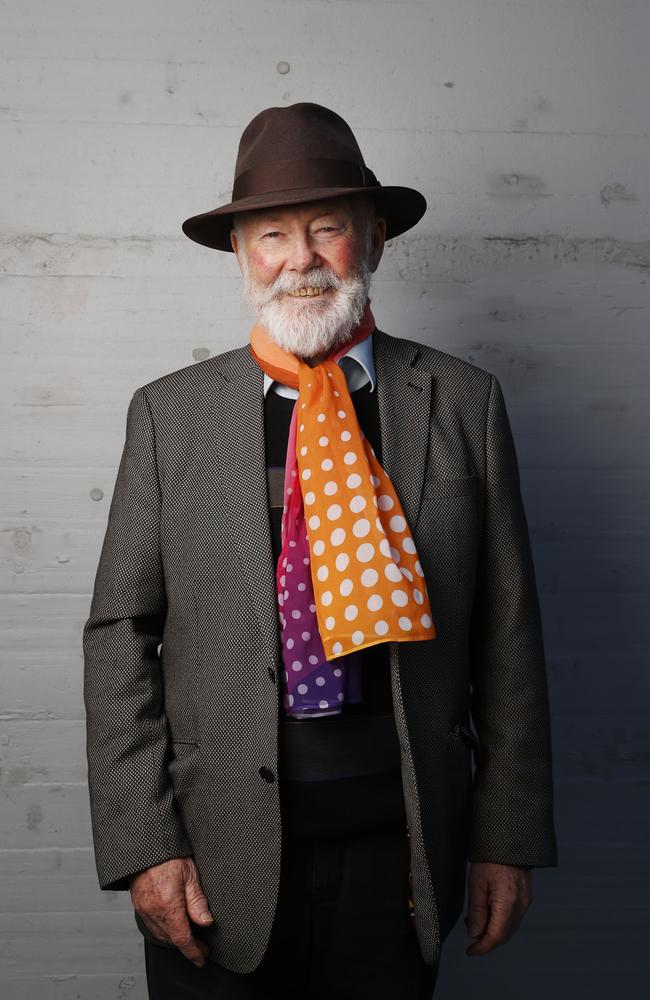
Fortunately that didn’t happen – the bonfire event was a huge success and the popular winter festival has continued to grow every year since, with the festival, set to run from June 27 to July 6, celebrating its 20th anniversary this year.
And while 78-year-old Cameron is no longer the festival director – he stepped away from the role after the fourth festival – he has returned to the spotlight this year to celebrate his “baby” turning 20.
Cameron, who was born and raised in Glasgow but moved to Australia in 1981, also remains deeply rooted in his adopted homeland of Tasmania. The experienced theatre producer and arts event consultant came to the state from Queensland in 1997 to organise a recovery festival for the Tasman community following the Port Arthur massacre, but he didn’t anticipate just how much he’d love the state. The married father of seven children – and 18 grandchildren – has proudly called Tassie home since.
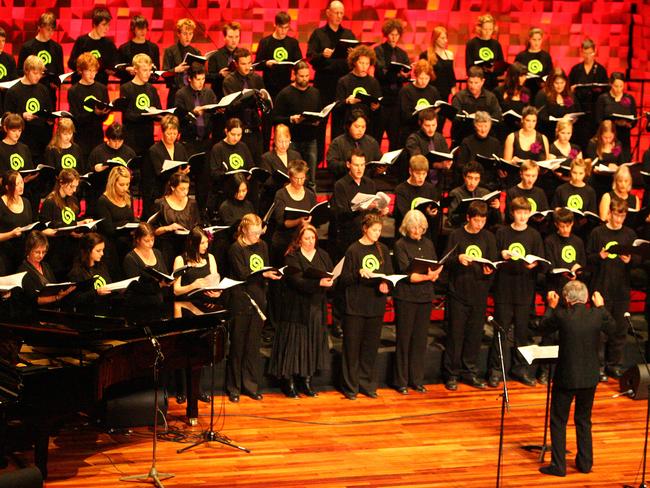
“I was living in Queensland and I’d been offered some work down here in Tasmania … I came down and did a recovery event with the local community following the Port Arthur massacre,’’ Cameron explains.
“And I fell in love with Tasmania, it was probably the most powerful event I’ve ever staged in my life. It was obviously a terrible situation but I loved the resilience of the Tasmanian people. And I think the climate helped me as a Scotsman. So, my wife (artist Faridah Cameron) and I, and our family, decided to move to Tasmania.’’
It was a time when Tasmania was a tourist hotspot during summer, but was dreadfully quiet over winter. And Cameron found himself tasked with creating a festival that would enliven Hobart during the cooler months and attract visitors to the state.
“There were hardly any tourists coming here, and it was devastating businesses,’’ Cameron recalls.
“It went from 100 per cent (occupancy) in summer to 5 or 10 per cent in winter. And the government was desperate to work out: ‘What can we do to try and attract mainland people down here to enjoy Tasmania in winter?’.’’
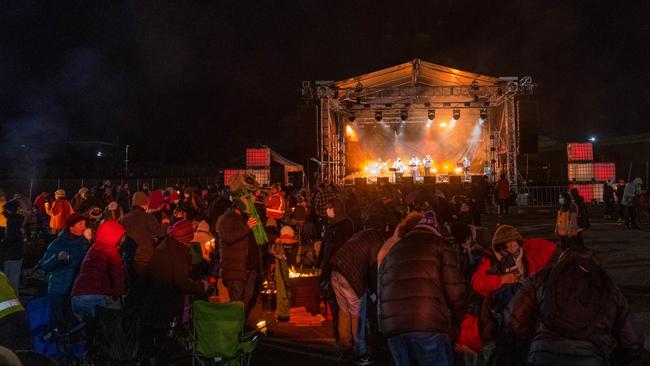
So Events Tasmania engaged Cameron to come up with a concept for a successful winter festival.
He admits he had lots of ideas – including a writing festival, and a dance festival – but ultimately it was a singing festival that seemed like the best fit.
“I had many conversations with many people and what I discovered was that we had a large number of choirs, not just in Hobart, but across Tasmania and also on the mainland,’’ Cameron says.
“So I had this brilliant idea to bring choirs, because you don’t have to convince 20 or 30 people to come, just the choral director – if you convince them to come then that person will drag 20 or 30 people down here. I’ve always loved choirs, and have used them a lot in my theatre productions. So I launched the idea and decided to call it Festival of Voices, which could include singers, or even storytellers or poets or whatever – the human voice – and left that very open. And it has proved to be a tremendous policy, as different directors over the years have incorporated cabaret and jazz and all sorts of other forms of singing.’’
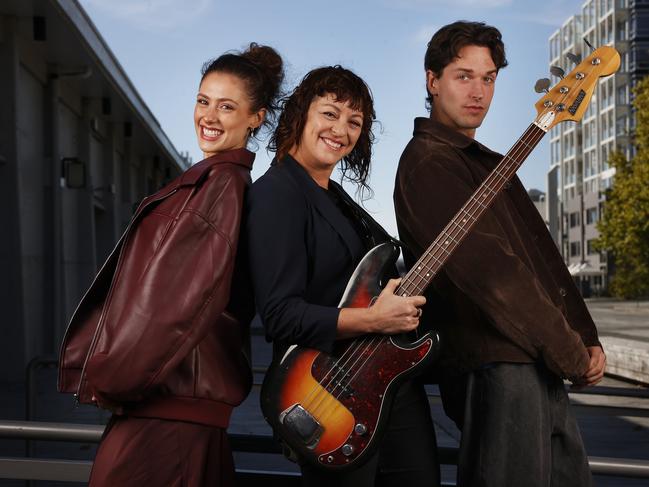
Cameron knew he needed big names in singing to attract large numbers of singing enthusiasts and secured a number of world-renowned choral experts for the inaugural festival, including Dr Horace Boyer, a prominent figure in the international gospel music community who mentored Aretha Franklin and shaped her hugely successful career.
He also realised Tasmania had a wealth of talent locally, including renowned musician, composer and academic Dr Andrew Legg, from the University of Tasmania’s Conservatorium of Music, whose Southern Gospel Choir was beginning to attract acclaim nationally and internationally.
But perhaps, most importantly, Cameron realised that it wasn’t just about bringing people here to learn skills from the best in the business – he also wanted to allow those participants to perform as part of the festival and showcase what they had learnt to a wider audience.
“It was essential that choirs that came here didn’t just learn something, but also went on stage,’’ Cameron says.
“We had people performing in Salamanca Square, at the market, up on the top of the mountain. We even had one choir that we took under the city in the rivulet tunnel, which was completely dark – we lit it with candles and they sang in the beautiful acoustics.
“We wanted the people coming (to Festival of Voices) to find out how wonderful Hobart was, so they’d not just go into rooms and learn how to sing, but do other things which exposed the wonderful town in which we live. It was not just a concert, but it was an experience of Tasmania.’’
This proved to be a winning formula – over the years the festival has attracted choirs from various parts of the world including Germany, China, Japan and the US, and vocal experts with a wide range of skills – from internationally-acclaimed English conductor David Lawrence to Eurovision popstar Dami Im.
Many participants return again and again, while each festival also attracts plenty of newcomers.
“The first year was a bit of a gamble,’' Cameron admits. “But people started to buy tickets and come to workshops. And they loved it, and they kept coming back.’’
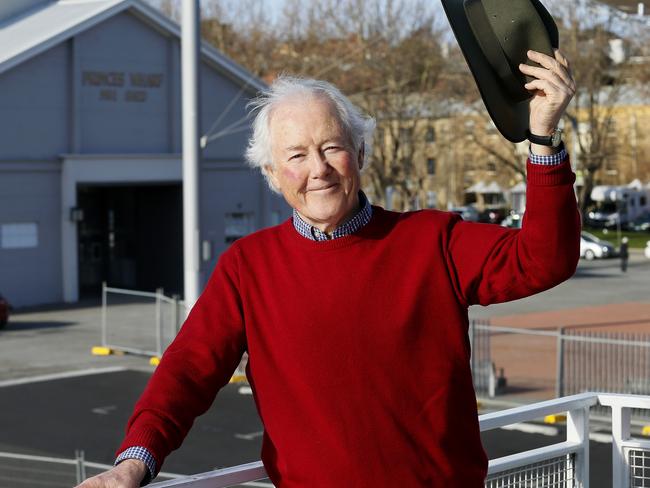
In that first year, Festival of Voices brought close to 1000 mainland singers to the state for 44 events, covering everything from gospel and sacred music to youth choirs and a cappella groups, with about 5000 participants involved in the week-long festival.
It has since grown to become one of Australia’s most celebrated vocal festivals – and a highlight of the Tasmanian winter calendar – now attracting about 30,000 attendees annually from all parts of the world who enjoy workshops, performances, singalongs, contemporary concerts and statewide pop-up experiences.
This year’s 20th anniversary program is expected to draw more attendees than ever before, with a bumper program featuring more than 70 ticketed events and 220 free events. The festival will kick off with the family-friendly Big Sing at Princes Wharf 1 on Friday, June 27 – an event that typically attracts about 5000 people and where everyone from first-time singers to seasoned performers sing together as one.
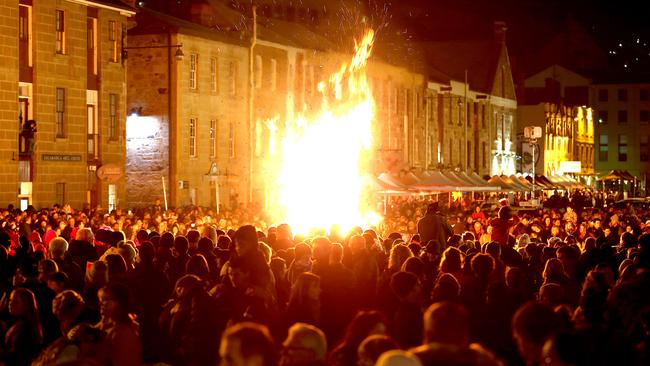
The festival will close with a Cheers to 20 Years event at Hobart City Hall on Sunday, July 6, which will bring together a range of choirs and contemporary artists – including sassy vocal quartet The Velvetones, the acclaimed Sydney Gay & Lesbian Choir, cabaret singer Michelle Pearson, Hong Kong Children’s Choir, singer/songwriter Beccy Cole, Brisbane’s Birralee Recycled and acclaimed composer and conductor Paul Jarman.
The festival also features iconic Australian duo Vika and Linda; a duet celebration by Monique Brumby and David Bridie; Gondwana Indigenous Children’s Choir with local artist DENNI; a workshop by two-time Grammy-winning conductor Christopher Kiver; and a show called But Then … in which environmentalist Bob Brown’s life is told through his poems and set to music.
A highlight of the festival will be the first Tasmanian performance of Verdi’s Requiem in over 40 years.

The compelling work will be conducted by David Lawrence – who will be visiting Hobart for his sixth Festival of Voices – and will feature soloists Sharon Prero, Katharine Tier, Michael Petruccelli and Christopher Richardson, together with a mighty chorus of 200 voices including members of the TSO Chorus, and the Festival of Voices 20th Anniversary Orchestra comprising members from the Hobart Chamber Orchestra and Hobart Wind Symphony.
The festival’s senior choral producer, Joan Wright, says having Lawrence return for the sixth time as a guest conductor, and this year leading the festival’s sought-after Classical Choral Workshop, was an “amazing testament to the artists that the festival attracts”.
Verdi’s Requiem is one of the most dramatic and operatic compositions of its kind, renowned as one of the most enthralling settings of the Catholic funeral mass.
“This is a spectacle of musical genius and a testament to the growth of the festival’s choral program over the last 20 years,” Wright says.
Wright has been involved with Festival of Voices every year since its inception.
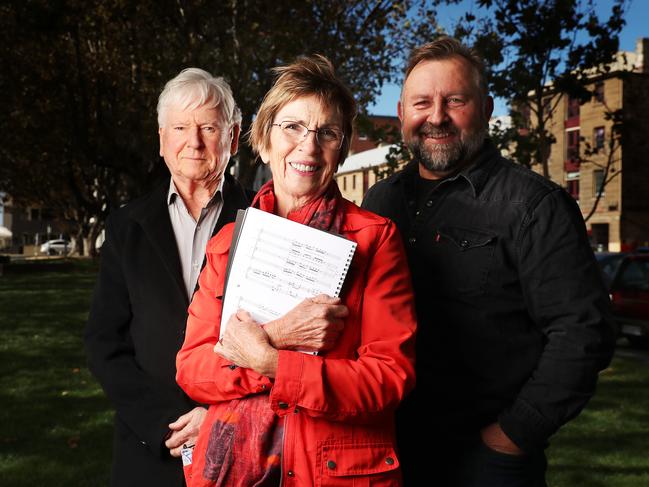
Her long career as a music teacher – at Fahan School, St Michael’s Collegiate and most notably Ogilvie High School where she spent 15 years managing a number of successful choirs – resulted in Wright ending up on Cameron’s radar when he was looking for festival ideas.
“I was teaching at Ogilvie High School and I was just about to retire,’’ Wright recalls.
“Neil came out to Ogilvie. He’d been given some money and was trying to work out what sort of festival he might run. And I said ‘Why did you come and ask me? You know what my answer would be’.’’
That answer, of course, was a singing festival. And that’s exactly what Cameron forged ahead with.
Wright was part of a group of teachers who volunteered to facilitate choirs for that first festival – she never imagined just how big the festival would eventually become, or that she’d return year after year to help run it.
Wright has been instrumental in developing the festival’s classical choral stream – even when she and her husband Gray moved interstate for a few years, Wright continued to return to Tasmania annually for the festival.
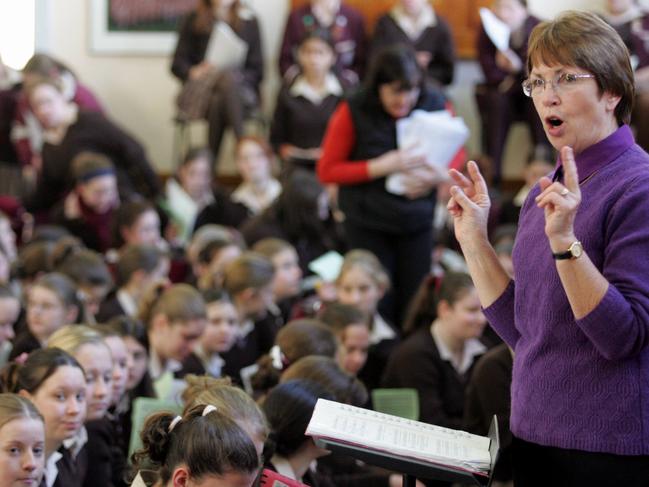
Wright moved back to Tasmania in 2016 – after her husband died following a battle with leukaemia – and continued her involvement with the festival. She insists this will be her last year as a festival organiser.
Wright, who was awarded an OAM for her services to music as an educator in 2019, says she’s proud of the way the festival has grown and matured, and she has enjoyed seeing it expand from a Hobart-based event to a more statewide offering.
She is proud that the festival has been successful in showcasing Australian composers and performing Australian choral works, and she is also proud of the strong following the highly-regarded festival has attracted.
Having Festival of Voices performances recorded live for Classic FM was also an honour.
“One of our strengths, I think, is the opportunity to share works that might not otherwise be heard,’’ Wright says.
“And we have won the respect of a lot of other major choirs and organisations. Everyone is hearing about us, which is lovely, and it’s because of the standards we’ve created. People keep coming back – it’s like a restaurant, you’ll go back if the food is good.’’
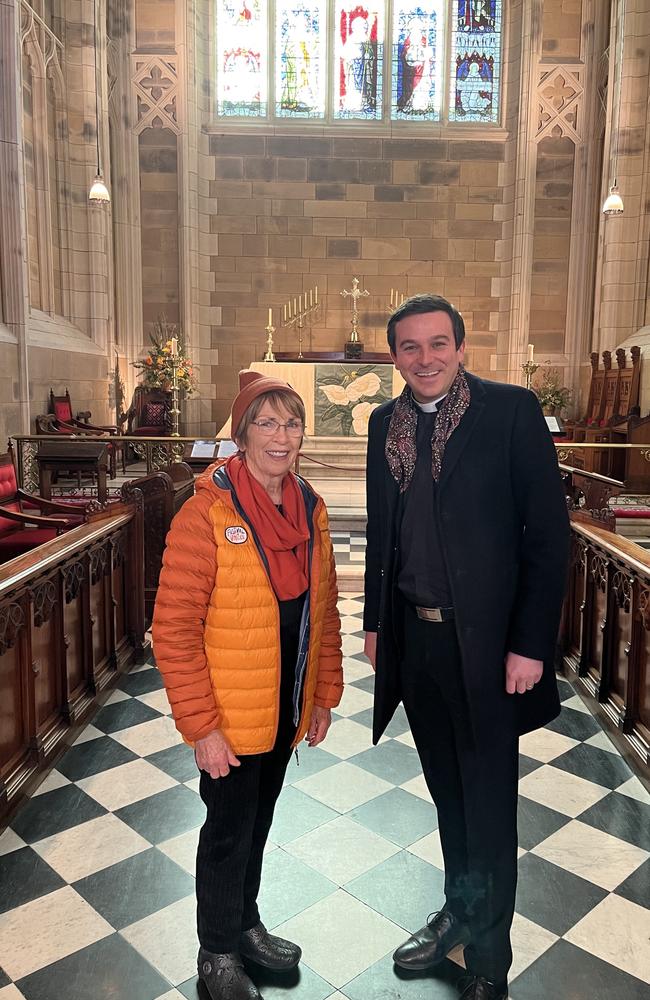
She is also proud of the inclusive nature of the festival.
“It doesn’t matter whether you sing in the shower or you want to sing a complicated score, there’s something here for everyone,’’ she says.
“Everyone is acknowledged and I think that’s really important, everyone’s contribution is valued.’’
Wright attended Ogilvie High School as a student and says if it wasn’t for her own music teacher recognising that she could sing she would never have become a music teacher.
She was among the first intake of students at the University of Tasmania’s Conservatorium of Music and majored in singing.
After teaching at Fahan School for a couple of years, Wright headed to London and then to the musical Austrian city of Salzburg, where she undertook further study.
And after a long career as a music teacher, Wright says Festival of Voices appeared at just the right time.
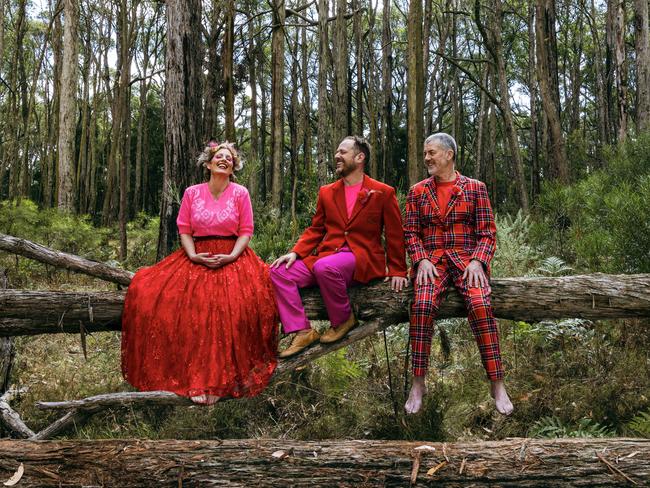
“I always think how lucky I was that I finished teaching but could still continue my passion for music,’’ she says.
“I just consider myself so fortunate.’’
The 78-year-old has worked with various festival directors throughout the history of Festival of Voices and is thankful they’ve all been willing to listen to, and support, her “mad ideas”.
“I’m not a lone sailor, it has been very much a team effort with friends and colleagues,’’ Wright says. “I’ve been lucky to be surrounded by people as passionate as I am. I thought I was coming to help for a couple of years … and then it just grew. I don’t think anyone in 2005 would have imagined we’d be putting on Verdi’s Requiem with 200 singers and an orchestra as part of Festival of Voices in 2025. For us to be able to put it on is a big milestone.’’
She says retiring from the festival is “a bit like giving up a child’’ that she’s come to know so well. But she already has a music trip to Europe planned with a friend and also plans to spend more time with her two children and four grandchildren – she is confident the festival will remain in good hands.
Cameron describes Wright as “one of the great pillars of the first Festival of Voices” and says her passion for choirs is unmatched.
“She is one person who has gone from the first festival to now,’’ he says.
“She’s seen the whole history unfold, and the number of people she has taught to sing – and to enjoy singing – is legendary.’
It’s quite the compliment coming from Cameron, who has been involved with hundreds of major arts projects nationally and internationally. He also has a PhD in cultural development and has more recently written a book about his long community involvement in festivals and events, which is set to be published by the end of this year.
Cameron says his childhood growing up in Edinburgh – home to the world’s largest arts festival – inspired a lifetime of working in the arts.
He was also given an insider’s view into the world of performing when he tagged along on jobs with his dad.
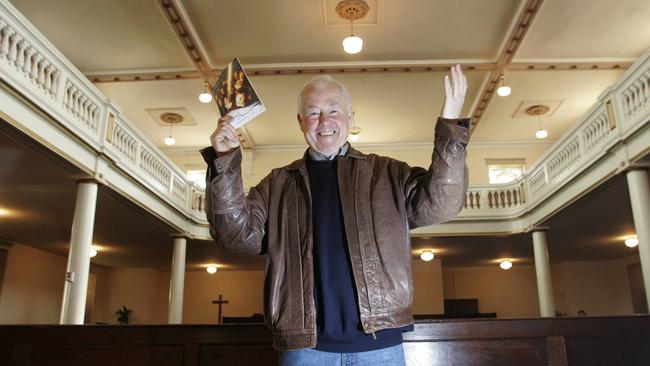
“My father was a vet and he used to look after the travelling circuses, which used a lot of animals in those days,’’ Cameron explains.
“I was taken backstage at theatres and circuses while my father looked after tigers and things – I saw jugglers and stilt walkers and acrobats quite early in life. And I was intrigued by what happened behind the stage – not so much on it, but what was behind the set. And I think that started me off, wanting to produce theatre and festivals.’’
When he was in his mid-20s Cameron was dragged into a police station – wearing a colourful jester costume – and received a stern talking to, after performing on the streets of Edinburgh.
It was 1972, when performing arts seemed to happen strictly in the confines of traditional theatres and galleries.
But Cameron and a couple of like-minded friends were determined to push the boundaries of what constituted art, with an animated street performance outside an art gallery, which attracted police attention.
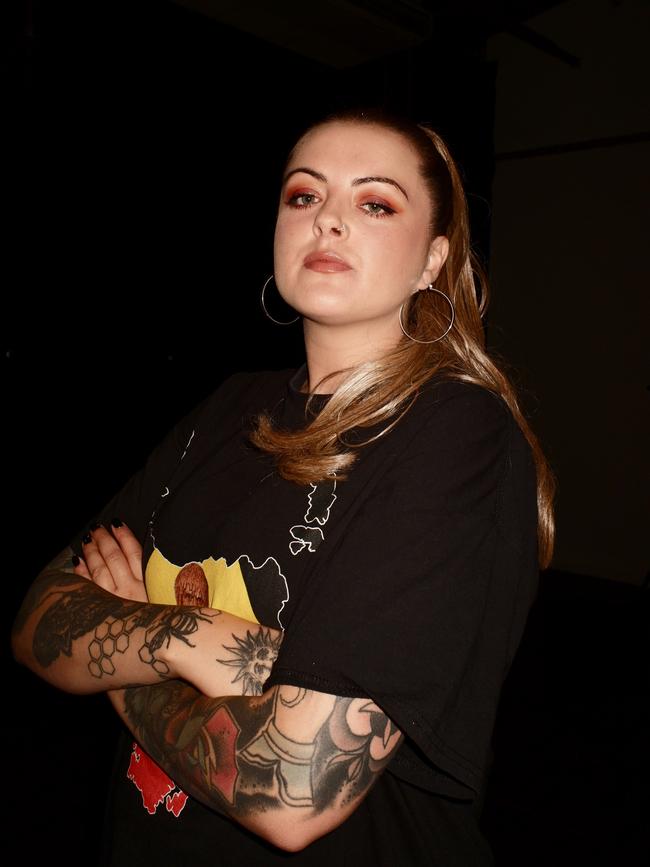
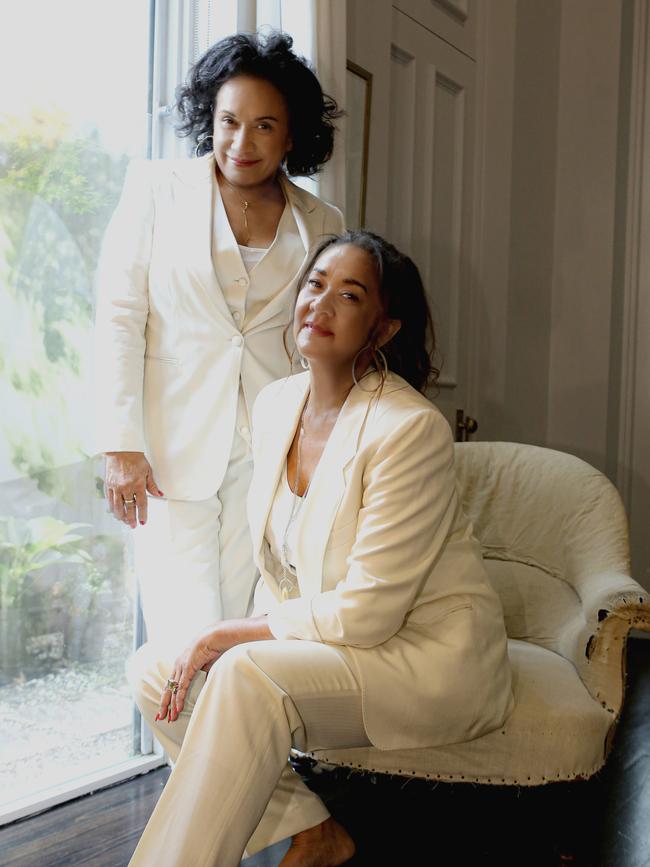
“The policeman said, ‘If you keep doing things like this, everyone will start doing it’,” Cameron recalls. “And I’m pleased to say he was right.”
He worked with young people in Edinburgh slums, putting together a show to tell their stories.
It was such a success that it spawned a string of other performance projects, and in 1981 Cameron came to Australia on a three-month scholarship to see how events were run here. He had no idea how life-changing that trip would be.
“I never dreamed I would stay in Australia,” he says. “But from the minute I got off the plane – within 30 minutes of being in Australia – I felt at home.”
He got a temporary job directing theatre, then another, then another. He has since worked on some of the world’s most popular festivals, in places including the UK, Germany, Japan, the Netherlands, Belgium, the US and New Zealand.
Cameron says seeing his Festival of Voices “baby” reach a 20-year milestone was hugely rewarding (the festival has been held every year since inception, except 2020 when it was cancelled due to the pandemic). It has also been rewarding to see the way the trailblazing festival has transformed the cultural landscape in Tasmania over the past two decades, with a string of highly-successful festivals, including winter favourite Dark Mofo, following in its footsteps.
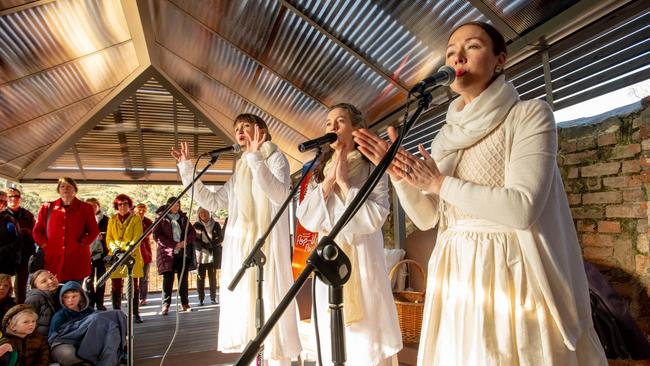
“It has grown into a full adult now – it will be 21 next year and I look at it with great pride and joy,’’ Cameron says of Festival of Voices, which began with a handful of staff and a one-room office and is now a thriving organisation.
“It’s true, we were the first festival that launched itself. But I think it just proved – as with other festivals (that have followed), especially Dark Mofo – that we could really alleviate the idea that Tasmania is empty in the winter.
“I think that the arts and festivals are one of the great attractions to tourism and I think the government did a great thing by bringing in festivals and the arts to attract people from the mainland … it has worked. Hobart is a completely different place now than it was many years ago, it’s very rich in so many events in winter – and summer too – and I think this has become a very big attraction for people on the mainland and now overseas too.’’
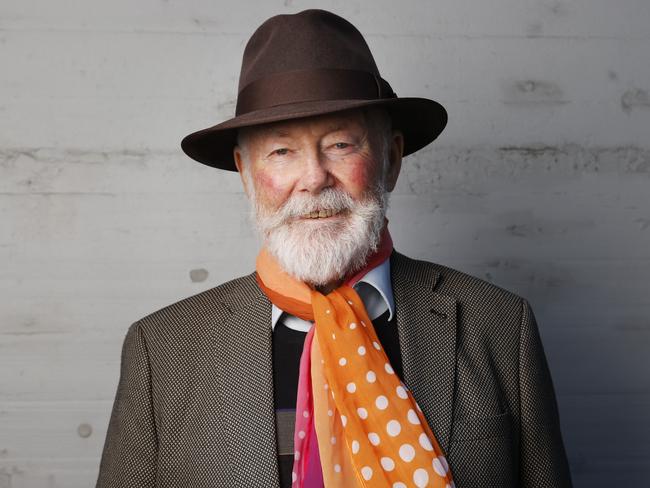
So, as thousands gather on Hobart’s Waterfront to kick off the 20th Festival of Voices with a Big Sing bonfire next month, Cameron will be singing right along with them.
“It’s wonderful to have been involved,’’ Cameron reflects. “I can’t believe it has been 20 years since we started Festival of Voices – that time just seems to have gone so quickly, but it has done so well, which is great.’’
Festival of Voices runs from June 27 to July 6, with free and ticketed events at venues across the state. festivalofvoices.com

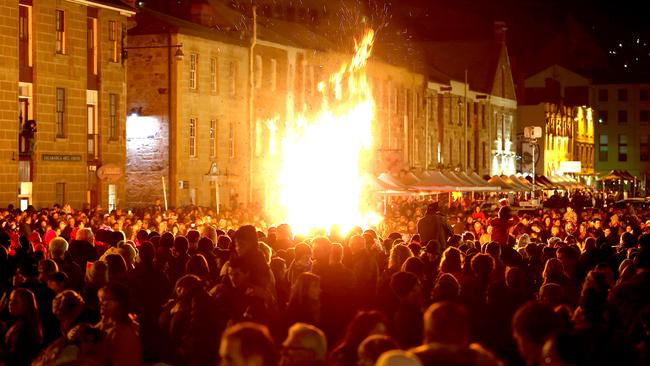
Add your comment to this story
To join the conversation, please log in. Don't have an account? Register
Join the conversation, you are commenting as Logout
Romance boom: Tassie author pens 100th book
Tasmania’s Ris Wilkinson became an author at 44 with romance juggernaut Mills & Boon. At 66, she’s penning her 100th book as Melanie Milburne – as writers converge on Hobart for a national event.
Coal River vineyard dishes up quiet culinary bliss
With a striking cellar door, smart seasonal menu and standout wines this vineyard is a must-stop in the Coal River Valley. Come for the views, stay for the food and a second glass of pinot ...